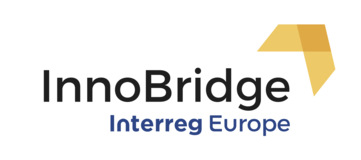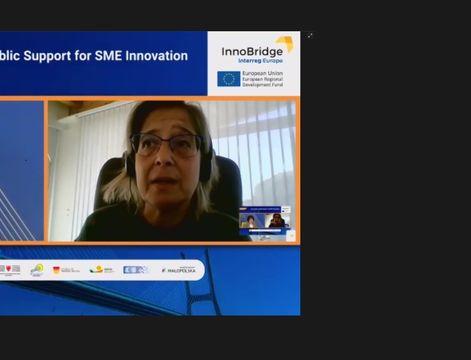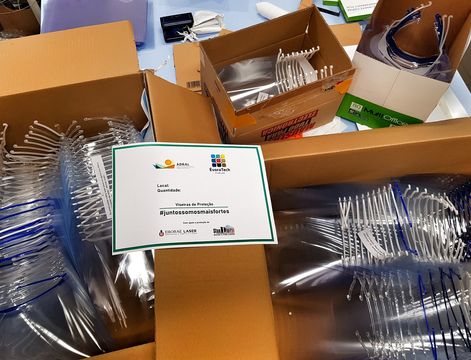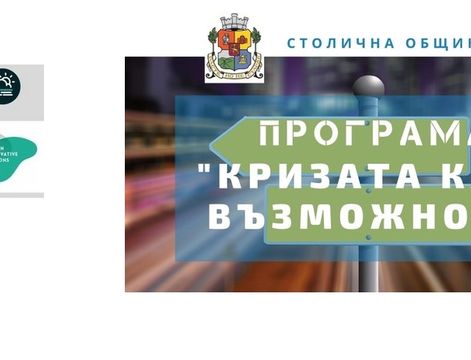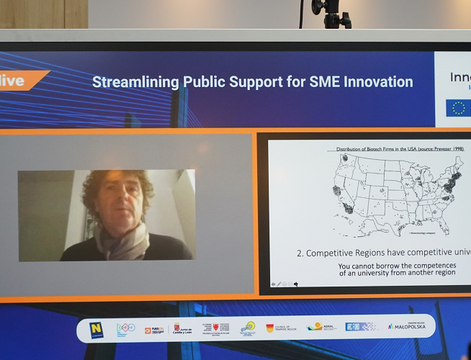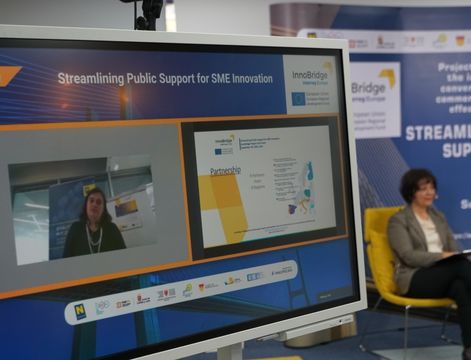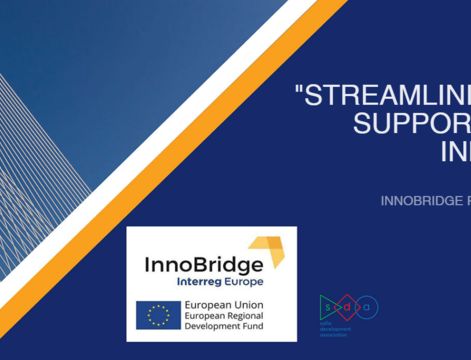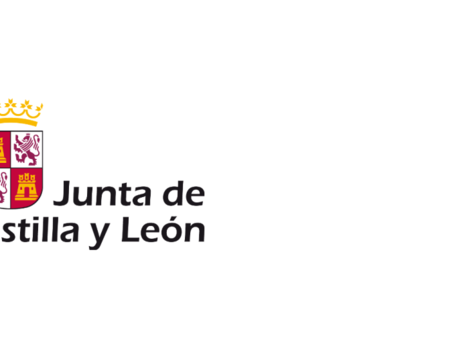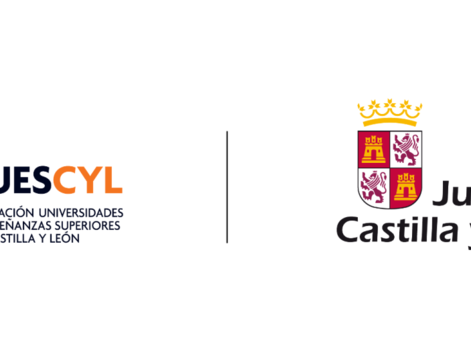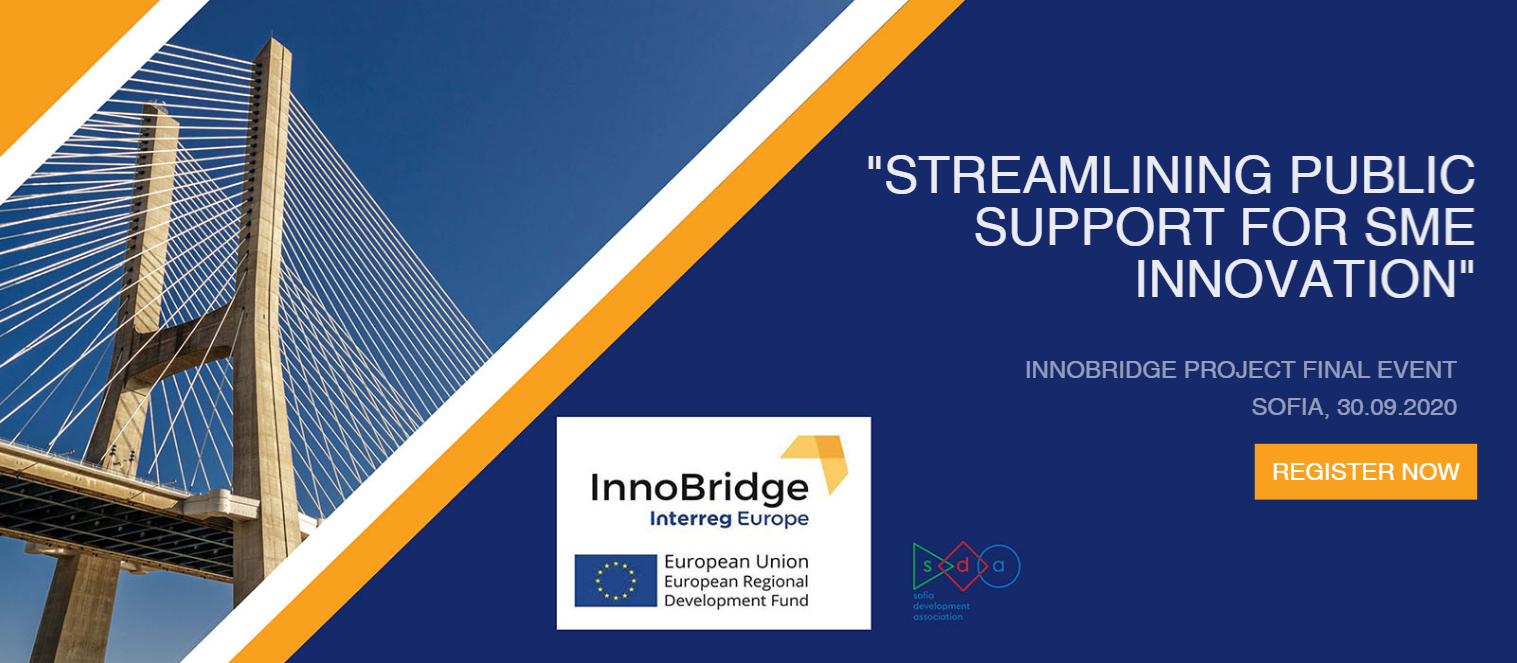The 7th Interregional Learning Workshop of InnoBridge project took place in Kraków, Małopolska Region on 20-22 March 2018. The meeting was hosted by the Marshal Office of the Małopolska Region.
It was the second in row Capacity Building Workshop (CBW) aiming to develop ideas for scenarios on “The role of the public sector in R&D+I support in long-term perspective and the way of intervention” for the next programming period 2021-2027 of the European Regional Development Fund (ERDF). This time horizon set the strategic nature of discussions and analyses.
The workshop was dealing with 4 thematically interlinked challenges, identified by the InnoBridge partners in the course of the policy learning process and Peer Reviews:
- The role of the public sector in R&D+I support in long-term perspective and the way of intervention (main challenge)
- Entrepreneurial spirit and culture of open innovation in HEI/RTO/public administration
- Digitalisation of R&D+I
- Support with “less money”
Impulse presentations on these challenges and related open questions were given by InnoBridge partners and key stakeholders from Małopolska, Lower Austria, Tampere and West-Transdanubia regions.
The workshop did not implement the full process of scenario development, but was focused on:
- identification of key driving forces with an impact-uncertainty evaluation
- developing ideas for success scenarios about “The role of the public sector in R&D+I support in long-term perspective and the way of intervention”,
- outlining examples of measures (short- and midterm) towards scenario implementation.
Prior the workshop more than 80 driving forces were collected by the task leaders Lower Austria (LP) and ARC Fund by asking the partners: “Which main factors will influence the role of the public sector in R&D+I support and the way of intervention in 10 years’ time in your region? Which trends do you see?” Partners sent driving forces, identified in the framework of their regions or having impacts at EU/global scale with short explanations and references. In order to facilitate the group work at the event all drivers were clustered into groups and printed out as single cards.
The workshop started with a work session for re-arranging the initial set of driving forces by the partners and to get a common understanding on the driving forces. Further insights on the challenges and associated key factors were elaborated at World Café rounds. Based on the analyses made in all previous steps, participants took part in two roundtables to develop success scenarios for Małopolska and Bolzano – South Tyrol as pilot regions.
The results of this capacity workshop fostered new ideas of mid and long-term measures for the Action Plans as well as opened new perspectives for the regions by taking in consideration on-going and emerging trends. Partners also pointed out some aspects that were challenging for them at the workshop, such as the risk of losing the focus on the addressed policy instrument while developing a scenario and some difficulties to feed the Action Plans with concrete measure stemming from the scenario development.
All experiences by this capacity workshop will be summarised and shared in the InnoBridge Concept Paper.
